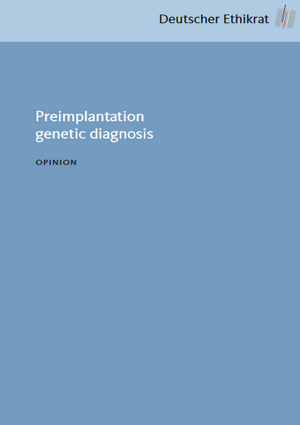Preimplantation genetic diagnosis
Published: 8 March 2011
In view of current technological and legal developments, the Ethics Council describes the current practice and the new possibilities of genetic diagnosis of embryos. The Opinion goes into detail on the various positions and arguments on the status and protection of embryos, discusses the most important socio-ethical aspects and develops two alternative proposals for legislation on PGD.
For a group of thirteen members of the German Ethics Council PGD is, subject to particular restrictions, ethically justifiable, because PGD opens a possibility of avoiding a lawful termination of pregnancy following prenatal diagnosis after medical indication, and also offers an opportunity of assistance to couples who for genetic reasons have experienced repeated miscarriages or stillbirths. The supporters of a restricted permission of PGD recommend that the legislature should lay down these criteria but should not create a catalogue of individual illnesses or disabilities in the case of which PGD may be considered. In addition, they suggest that there should be rules of procedure for conducting PGD, which should be uniform nationwide.
The second proposal by eleven members of the Ethics Council is of the opinion that pre-implantation diagnosis is not ethically justified and should be prohibited. According to these members, the concerns and wishes of couples carrying genetic risks must be taken seriously. However, they do not justify the introduction of PGD. Instead, it must be ensured that there is better counselling and support for affected couples or families; it must also be examined whether their genetic problems can be alleviated by means of other procedures.

